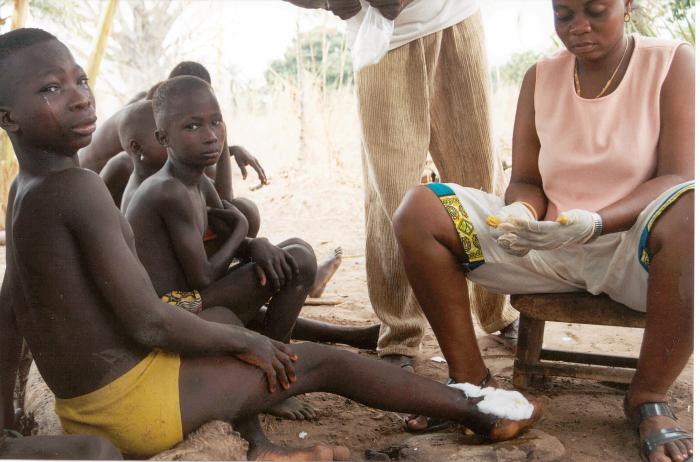Humanity is on the verge of eradicating an infectious human disease for the second time: Guinea worm disease. This tropical parasite affected millions of people in the 1980s – but the latest provisional figures show just 13 human cases reported worldwide in 2022.
The record-low number of Guinea worm cases was recently reported by the Carter Center. Out of the 13 documented cases, six were reported in Chad, five cases in South Sudan, one in Ethiopia, and one in the Central African Republic.
The figure from 2022 marks a 13 percent drop from 2021, when 15 cases were reported. This follows the gradual demise seen in previous years, with 27 human cases in 2020 and 54 in 2019.
The case numbers are currently provisional and will be officially confirmed in March 2023, but suggest we are closer than ever to eradicating this disease from humans. If that is achieved, it will be the second infectious disease of humans to be eradicated after smallpox.
“We are heartened that eradication can be achieved soon,” former US President Jimmy Carter, who co-founded the Carter Center in 1982 with his wife Rosalynn Carter, said in a statement.

A girl named Akouma from the Dofelgou District of Northern Togo getting a Guinea worm removed. Image credit: CDC/The Carter Center
Guinea-worm disease, also known as Dracunculiasis, is a parasitic infection by the Guinea worm, Dracunculus medinensis. The disease is called by the female of the species, which can grow to a massive 100 centimeters (39 inches) in length.
People become infected with the parasite by drinking contaminated water. As part of the worms’ lifecycle, larvae of the Guinea worm infect tiny crustaceans or copepods, also called water fleas, that live in freshwater. If people drink the contaminated water, the water fleas will be broken down by stomach acid, freeing the worm larvae into the guts.
They will then penetrate the wall of the intestine and migrate under the skin tissues until they reach their exit point, often on the lower leg or feet. Here, the worm will remain burrowed under the skin, causing a large blister that will eventually pop after 10 to 14 months, releasing the worm and hundreds of thousands of larvae.
While the disease is rarely fatal, it can be extremely nasty and can incapacitate people for several weeks or months. Along with a painful blister, people can expect to feel ill with a fever, vomiting, diarrhea, and dizziness.
There are no drugs or vaccines that can be used to treat or prevent Guinea-worm disease. That means this disease, unlike smallpox, is set to be the first to be wiped out without a vaccine or medicine.
Its potential eradication has been made possible through extensive programs by NGOs, such as the Carter Centre, and health authorities, like the World Health Organization. As well as raising community awareness and education about the problem, there has also been a huge effort to monitor infections, filter drinking water, and protect water sources from contamination.
These efforts have proved to be unbelievably successful. During the mid-1980s, there were an estimated 3.5 million cases of Guinea-worm disease in 20 different countries – now, case numbers are heading towards single figures.
Finally, the end is in sight.
“We continue to study ways to defeat and prevent this infection. Community members, ministries of health, and our partners are working with us to implement interventions that are effective, including research to find innovative solutions. We won’t stop until the last Guinea worm is gone,” added Adam Weiss, Guinea Worm Eradication Program Director.
Source Link: Guinea Worm Disease On Verge Of Being Second Eradicated Human Illness